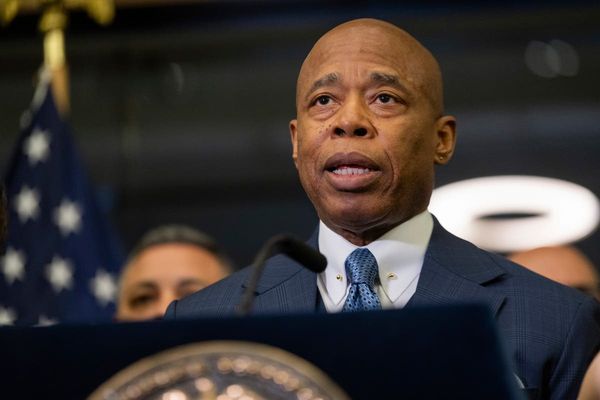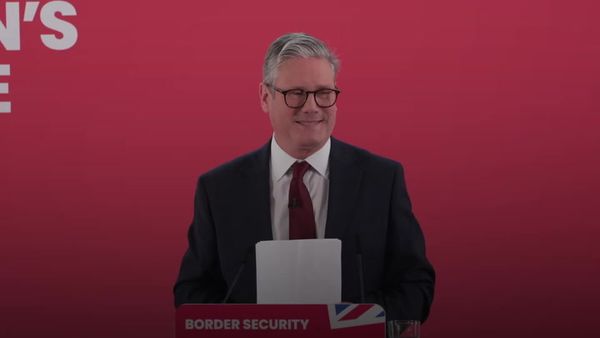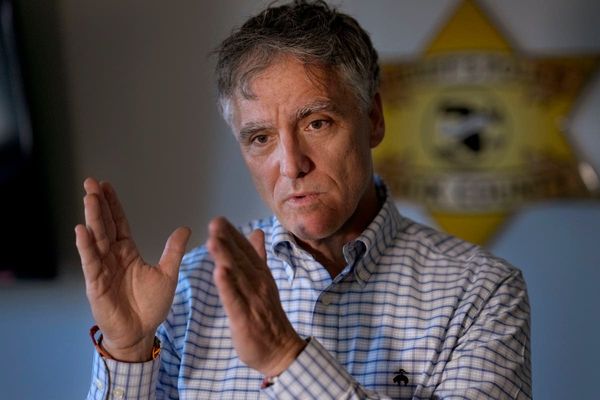
To hear Scott Morrison and Josh Frydenberg tell it, yesterday’s interest rate rise has nothing to do with them. It’s exactly what should be expected because they handled the pandemic so brilliantly, and if rates are rising sooner than expected, it’s because of international inflationary pressures.
Nothing to see here, they don’t hold a hose, etc, etc.
And true, interest rates weren’t going to stay at 0.1%. Maybe they were never even going to stay there until 2024 — although under the Reserve Bank’s now-abandoned “wages first” policy, we might have been waiting until the 2030s for wages growth to get above 3%.
But in assessing the timing of an interest rate rise given increasing inflation, the Reserve Bank and its board would have taken into consideration the government’s fiscal policy. Remember, Philip Lowe spent much of his pre-pandemic period as RBA governor calling for the government to do more with fiscal policy to stimulate the economy and lift inflation. Fiscal policy is a crucial input to the RBA’s decision.
And fiscal policy? A $134 billion deficit this year. Next year, $80 billion. The year after, $80 billion. In fact, budget deficits into the 2030s. Because the government has permanently increased the size of its spending to more than 26% of GDP — and more than 27% for the moment — while failing to lift tax receipts to cover the cost. They’ll peak only at about 23% — way higher than under Labor, but still short of what is needed to cover spending.
It’s the kind of spending and deficit stimulus that you need when unemployment is at 10%. But unemployment, the government proudly tells us, is 4% and falling.
The bizarre reality of so much stimulus spending when unemployment is at record lows got far less attention than it deserved back when the budget was released.
So while the government is withdrawing the level of stimulus next year, it’s still spending $80 billion more than the macroeconomic circumstances demand. And so much of it is empty calorie spending to buy reelection — pork-barrelling, unnecessary infrastructure that will drive up construction inflation, middle-class welfare to wealthy seniors, petrol excise cuts — rather than spending that might strengthen productivity or address emerging real infrastructure gaps in decarbonisation and electrification (electric vehicle charging batteries being the best example).
After the budget, we said this would fuel inflation and push the RBA to lift rates. Except we were too optimistic and thought there’d be no rate rises until after the election. But the RBA has decided the numbers are ugly enough to move now. And Crikey has been the only outlet to consistently point out we have permanently increased the size of government without bothering to raise taxation enough to cover the cost.
In fact we’re giving middle- and high-income earners a big tax cut from 2024. The only good thing about that is that they have a much lower propensity to spend than low-income earners.
It’s not just the federal Coalition either. The Andrews government (also facing reelection) has just handed down a budget with a $22 billion increase in spending, and deficits through to the second half of the decade. All while unemployment is at 4% in that state.
And note the big warning in Lowe’s post-meeting statement — his forecast that GDP growth would fall from more than 4% this year to just 2% in 2023, even as inflation keeps running at 4%. That’s a high-inflation, low-growth environment, or stagflation, that reflects what happens when you aim spending at electoral sugar hits and not productivity.
So yes, it’s true that Morrison and Frydenberg couldn’t have stopped interest rates from normalising, and shouldn’t have tried to. And yes, there are international pressures on inflation that we can’t control. But in an environment where the RBA is worried inflation is taking hold domestically, the government’s fiscal policy is petrol on a fire threatening to get out of control. So sorry, prime minister and treasurer, but you own a slab of yesterday’s decision.
And whoever wins on May 21 will be stuck with having to tell Australians that with between 27% of GDP spending and 23% of GDP taxation something’s gotta give — otherwise interest rates are going to rise a lot higher for a lot longer.







